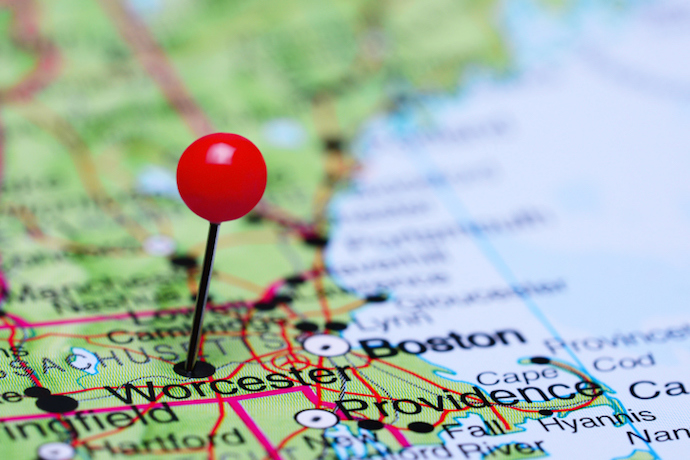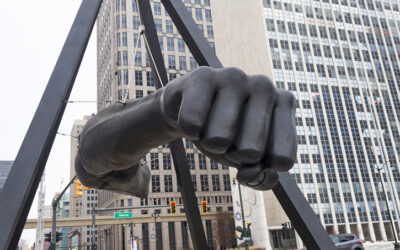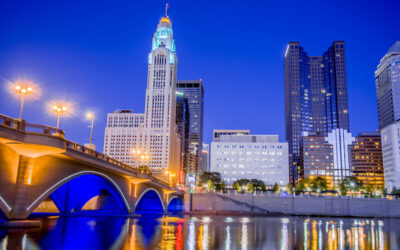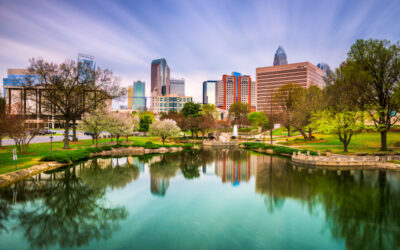Go to any city in the United State as a visitor or new transplant, and you’re likely to sound foolish and out of place sooner or later. The local customs, accents and pronunciations are sure to trip you up.
Boston is no different in that regard. Many a tourist, business traveler or transplant have landed in Boston thinking they know what to expect, only to be left feeling more than a little flummoxed.
For those of you thinking of going to Boston and wanting to minimize (though not totally eliminate) the unexpected, here’s a primer on what to say, what not to say, and just generally how to get by without sounding too much like an out-of-towner:
‘Beantown’
Enthusiastically referring to the city as “Beantown,” its unofficial nickname, is usually a dead giveaway that you’re new to the city. Bostonians generally avoid the term, even though they definitely like their baked beans. It has much to do with an old, dying tradition of eating franks and beans and canned brown bread (yes, brown bread in a can) on Saturday nights. But try to avoid using “Beantown” if you want to sound like a regular.
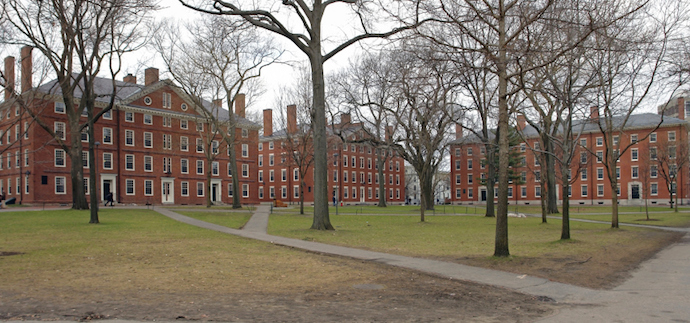
Good luck trying to actually park your car at Harvard Yard in Cambridge.
‘Pahk your cah in Hahved Yahd’
Ugh. It’s such a tired old line.
Another dead giveaway you’re not from the area. But the old Boston-accented “Park your car in Harvard Yard” line seems like it will never die. So we might as well get the true accent down right, for it’s technically, among those with a true and thick Boston accents, closer to: ‘Pak ya ca in Havid Yad.”
Notice that the latter version still drops the “r” in words—an infamous Boston way of pronunciation. But the latter doesn’t include that extra ‘h’ in the words. The ‘h’ is more of an aristocratic Brahmin way of saying the corny phrase, similar to a British accent.
But don’t get too hung up on Boston accents. Why? Sadly, the accent is slowly fading away as the city and country and even the world become more culturally homogenized. If anything, many visitors to Boston are surprised not to hear the famous Boston accent as much as they had expected. The accent is alive and well in working-class and some middle-class neighborhoods, both in the city and surrounding suburbs.
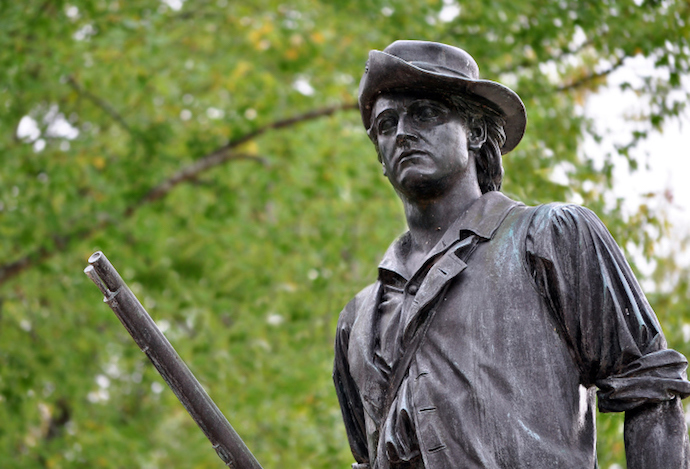
The Minute Man Statue in Concord.
Concord
As in the famous “Battle of Lexington and Concord.” Many outsiders pronounce “Concord” as “Con-Chord.” All Bostonians, not just some, pronounce it either “Con-kurd” or simply “Con-kid,” if they have a really thick Boston accent and drop the “r.”
Peabody
It’s a city north of Boston. Actually, outsiders probably pronounce it accurately, as in “Pee-body,” but Bostonians call it “Pee-bid-ee.” This is often a test word Bostonians will mischievously throw at outsiders to see how they pronounce it. Locals also get a hoot out of watching new-to-town TV weathermen or weatherwomen pronounce Peabody wrong. (Or is it right?) Anyway, you’ve been warned.
Worcester
It’s a city, home to the UMass Medical Center and Medical School, in central Massachusetts. Outsiders often get tongue tied in its pronunciation, sort of like how most people, Bostonians included, have trouble pronouncing “Worcestershire sauce.” In Boston, locals pronounce “Worcester” as “Wiss-ter.” There is no “or” in the first syllable. Some locals just pronounce it “Wiss-ta.”
Wicked (fill in the blank)
Bostonians use the word “wicked” like others use the word “very.” As in, “The pizza is wicked good.” It can also be used as “wicked bad” and “wicked awesome” and just plain old “wicked” for most anything you want. Actually, the use of the word “wicked” isn’t as prevalent as it was even a few years ago. But it’s still used a wicked lot.
In Boston shooting intvs for a story. Riding the T for first time & got a coffee from the very first Dunkin Donuts! pic.twitter.com/aSOytTKidM
— Tisha Thompson (@TishaOnTV) October 20, 2015
Giving and getting directions
Forget about accents and odd word usage. If you’re lost in Boston, don’t ask for or expect directions to be given in normal directional language like “east,” “west,” “north” and “south.”
Bostonians use “left” and “right” and “straight ahead” and cite landmarks for when and where to turn. This is not a joke. Bostonians have literally no sense of whether they’re facing north or south or east or west – unless they’re facing the Atlantic Ocean. Even then, they have to think about it before saying ‘That’s east!’
Why is this? It’s largely because Boston’s street system, extending well out into the suburbs, is a hopeless tangle of curving, winding and dizzying roadways that can often befuddle even longtime residents. There is no logical street grid system. Locals like to joke that Boston’s roadways are nothing more than the original Colonial-era cow paths, which may not be far from the truth.
Because of the street-level chaos, Bostonians won’t give directions such as “Go north two blocks, then east for three blocks …” Instead they’ll say while pointing, “Go sort of straight that way then take a curving left at the Dunkin’ Donuts – then go till you see the big brown courthouse and bang a right.”
And, yes, there are a lot of Dunkin’ Donuts in Boston, where the fast-food chain was originally founded, and the running local joke is that no directions can be given in Boston without using a Dunkin’ Donuts as a directional landmark.
